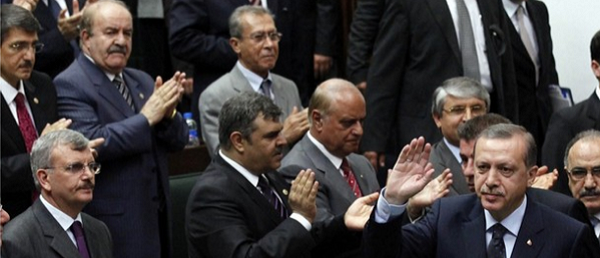
By Isaac Martín Barbero | Turkey is bound to grab the attention of governments and investors around the world in the coming years. Last June, with an 87% turnout, the Turks renewed their confidence in the ruling Justice and Development Party (AKP) led by Recep Tayyip Erdoğan and opened the prospect of a third consecutive term to his ambitious project to transform the nation.
Today, Turkey presents itself as a country with a government that has no internal opposition strong enough as to stand up to its policies. On the contrary, it has a clear domestic development strategy and an equally definite aspiration with regards to the role it wants to play in regional and world affairs.
Apart from the repeated electoral victories and winning the “yes” advocated by the government in the September 2010 referendum about constitutional change, the AKP has prevailed over its greatest political rival: the army. Within the alliance of Europe,Turkey has drawn attention for the extraordinary role that the army displays in society and politics. With a history of coups and political interference, secular as much as religious Turks mostly agreed on the impossibility of any political option that defied the power of the generals of the Republic. Now, things have changed.
Tensions between the ruling party and military civil servants began to gain force in 2010, when military leaders dared to boycott the inauguration of President Gül in protest for the fact that his wife attended the event covered with a headscarf. A year later, the Constitutional Court decided, by a single vote, not to outlaw and disband the ruling party. After that, the police –under government control– uncovered some ultra-nationalist plots to destabilize the country and overthrow the AKP government (“Ergenekon” and “Mazo”), which triggered waves of arrests of senior military including a four-star general on active duty, in May 2011.
The situation erupted in early August 2011 with the resignation of the Chief of Staff and the three generals in command of the three armies, in protest against the government. Thus, the Supreme Military Council was held in early August in the absence of five members of the military. This circumstance, together with the appointment as head of the armed forces of a General of the Gendarmerie responsive to the government’s views, appears to end the Turkish exception and open the door to an era in which armed forces are fully subordinated to political power and without the ability to overthrow any political leadership that does not meet its approval.
SELLING PROSPERITY
Meanwhile, now that the so-called “Washington Consensus” seems dead, Turkey’s government has managed to transform a country that once was the largest and most continuous customer of the International Monetary Fund (19 agreements on as many adjustment programs and support financed by the IMF) into an anchor of stability and growth in a global context of widespread crisis. The AKP has since its rise to power in2002 developed a policy of orthodoxy centred on boosting the necessary reforms to meet the Copenhagen criteria and economic rationality.
In response to the current crisis, a policy has been implemented to facilitate the recovery of the economy through fiscal measures included in a medium-term financial plan (MTP) –updated several times– designed to maintain investor confidence by achieving a stable inflation rate compatible with low interest rates. This policy, which has proven to be very profitable in political terms, has earned the applause of the markets and the international rating agencies. As a result, these have given the Turkish sovereign debt a positive investment grade while downgrading those of Western European countries.
COMPLICATED FOREIGN RELATIONS
Very much in contrast with what Turks would like, the main foreign policy issue for Turkey is its long-delayed accession to the EU. If we consider that this issue is closely marked by advances and setbacks in the Cyprus issue –the de facto partition of the island after the Greco-Turkish war of 1974 and the successive attempts to reach an agreement on its final status–, we have the question at the core of what ordinary Turks understand, and really care about, when talking of foreign policy.
Since the start of accession negotiations, only one of the 35 chapters has been completed, five have been vetoed by the French government and eight have been “frozen” since December 2006, following the closure of Turkish ports and airports to Cypriot ships. After the elections last June, and with an eye on the second half of 2012 when Cyprus will enter the EU’s rotating presidency, the Turkish government has threatened to stop its accession process if the demands of the Turkish Cypriots are not met. The outlook is not good…
Also, it does not help what is perceived in the European capitals as Turkey’s (a traditional ally of the West) excessive enthusiasm to join the race for influence in the international arena. Its desire to come up with its own solutions, first in the Iraq conflict, then in Libya and later in Syria, should be added to its policy of confrontation with Israel and its conciliatory gestures toward Iran’s nuclear whims.
As a consequence of all this, Turkey seems to have opted to turn over to the East and become more prone to give greater prominence to its status as leader of the Muslim world in detriment of its aspirations to be a full member of the West.





Be the first to comment on "The end of the Turkish exception"